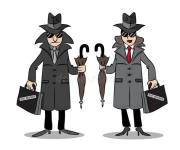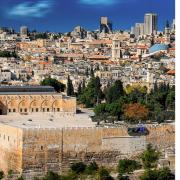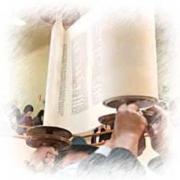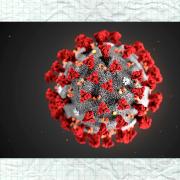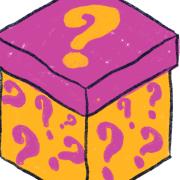Why Did The Brothers Hate Joseph?
In the story of Joseph and his brothers, one incident stands out and makes the whole story seem very puzzling. Let's delve into it and try to understand it.
As you already know, there was tension between Joseph and his older brothers, one against the many. Some commentators say it was jealousy, others say it was simply hatred, but let's look at it in more detail.
"And Joseph went after his brothers, and found them in Dotan," says in Midrash Tanchuma, Parashat Vayeshev 13:6 (Gen. 37:17-18). Per his father's request, Joseph was coming towards his brothers. As he approached, the brothers saw him from afar and said to each other, "Here's the dreamer coming," and they began planning how to get rid of him. Some suggested killing him to solve this problem once and for all. The older brother, Reuven, suggested throwing him in the pit. He said Why kill your own blood, your own brother, when we can accomplish the same by throwing him into the empty pit. In Masechet Shabbat 22A, it says: "Pit empty from water but full of snakes and scorpions." Everyone liked this idea, except Reuven, who thought to himself that he would come later to rescue him.
When Joseph came close to his brothers, they pulled off his fancy coat - the one his father gave him, the extra one - Rashi (Parashat Bereshit 37:24), and threw him into the pit. As they sat down to eat, they saw a caravan passing by, so out came another brilliant idea to sell their small brother to Arab merchants, to be taken to a distant land (Bereshit 37:27). And so they did. As much as Joseph pleaded with them, they were determined on their plan and did not turn from it, and the caravan slowly left their sight.
After the brothers left the scene, Reuven came over to rescue Joseph, but to his astonishment, Joseph was gone. Reuven tore his clothing in grief, but it was too late - Joseph was nowhere to be found. Rashi (Bereshit Rabbah 84:19).
Where was Reuven? Wasn't he the one who gave the idea to throw Joseph into the pit?! Why didn't he stay to make sure his suggestion was carried out? Why did he leave the scene? In Midrash Tanchuma, Vayeshev 13:9 (Gen. 37:22:) says: "If Reuven had known that the Holy One would write this verse about him (about his suggestion and his intention of coming back for Joseph later), he would have placed Joseph on his shoulders and brought him unto his father."
One of the answers Rashi gives in (Bereshit Rabbah 84:19) is that Reuven was doing a teshuvah, a repentance for the incident that took place after the death of Rachel. What he did was move Jacob's bed from one tent to another. But hold on a second, that incident happened 10 years ago. Why was he doing the teshuvah now, after 10 years?
When Rachel Imenu died, Reuven thought to himself, saying that the right place for the bed was in his mother's tent, Leah. Without consulting his father about whether he wants this done, he has moved the bed himself. What he did was challenge his father, Jacob's authority, by moving the bed on his own, based on his own thinking, calculations, and conclusions. As a result of this, the punishment which Reuven suffered was threefold -- he lost the birthright, the priesthood, and the kingship.
And now 10 years later, Reuven looks at Joseph and his brothers, and asks himself – Why are the brothers treating Joseph this way? Okay, granted, he may have said lashon hora or slander, he may have behaved differently than you, but he is their small brother and may have been too young to make the right decisions; they should have given him the benefit of the doubt. And if Joseph is doing something wrong, let the brothers go and ask their father, Jacob, to get involved so he can tell them how they should behave in this situation. Maybe Jacob will admonish Joseph, or maybe he will let them know how to behave towards Joseph, so this issue should not escalate into something out of proportion, as they say: "nip it in the bud" under their father's supervision. Which would make things correct and no one would have gotten hurt and no ill feelings would have been around.
But something else was happening: the brothers were following in Reuven's footsteps; he was witnessing the consequences of his own action—he saw how his brothers treated Joseph, thinking they could get away with it, which was a direct result of his own action. They are making the same mistake he made 10 years before. Reuven has subconsciously taught them to act on their own conclusions without consulting their father or any other authority.
How about us?
Do we jump to conclusions and act out on our fears and anxieties, without thinking of the consequences the other party may have? Do we feed someone non-kosher food and he ends up liking it, and maybe later gets a job in non-kosher place and marries a non Jew. Have we introduced someone to try something they should of not and they have liked it and their life is not the same anymore. Have we mistreated someone in a synagogue, at work or someone we may have known while wearing a kippah and looking very or somewhat religious, and that person left the religion with a bad feeling toward the religious people, what will happen to all the generations that will come from him after this?
Think before you act, and, most importantly, consider the consequences.
Every Yom Kippur, when we finish the Shmoneh Esreh of Shacharit and before starting the chazarah, in Sefardi sidurim, there's a song, which goes like this: "Hashem Shamati Shim'akha Yareti Hashem."
It finishes off the song with these lines: "Hashem, sifrey chaim umetim lefonecha niftachim..." -- "Hashem, the Book of Living and the Book of Dead are open before You?" (Habakkuk 3:2)
I understand why Hashem would open the Book of Living, as it says in the in Masechet Rosh Hashanah 16b: "Rabbi Kruspedai said that Rabbi Yoḥanan said: Three books are opened on Rosh Hashanah before the Holy One, Blessed be He: One of wholly wicked people, and one of wholly righteous people, and one of middling people whose good and bad deeds are equally balanced. Wholly righteous people are immediately written and sealed for life; wholly wicked people are immediately written and sealed for death; and middling people are left with their judgment suspended from Rosh Hashanah until Yom Kippur, their fate remaining undecided. If they merit, through the good deeds and mitzvot that they perform during this period, they are written for life; if they do not so merit, they are written for death."
Besides writing the names of the new people in the Book of the Dead, Hashem judges those people who have already passed away a long time ago... why? Aren't the dead gone and everything forgotten?
No matter how many years passed from whatever incident you might have had, be it money, slander, or something else. If the consequences of your actions, after many years, still affect the people involved (see the Book of Chofetz Chaim - a story with a pillow), even generations later, you still get punished, no matter where you are and what state you are in - dead or alive. It's just that, while you're alive, you still have the ability and the chance to repent and fix whatever situation you have caused.
Understanding the magnitude of the situation and the consequences it had caused, Reuven was doing teshuvah ten years after the incident – feeling his direct involvement in the treatment of Joseph and in all that followed.
Shmuel Katanov





